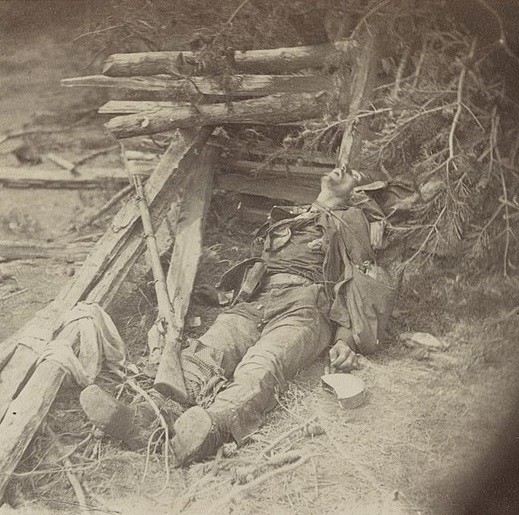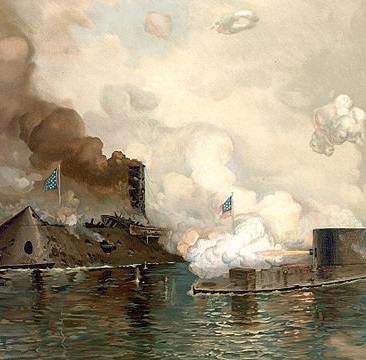
by Richard Subber | Nov 30, 2022 | Book reviews, Books, Language, Poetry, Reviews of other poets
good story telling…
Book review:
The Complete Poems of Sarah Orne Jewett
by Sarah Orne Jewett (1849-1909)
New York: Ironweed Press, 1999
85 pages
It is a solid, pleasant experience to read the poems of Sarah Orne Jewett.
Mostly her imagery in The Complete Poems is not exalted, and mostly her insights are not life-changing, but she is a compelling story teller and she invites the reader to see what she sees.
That’s good.
Some excerpts:
“And so, across the empty miles
Light from my star shines. Is it, dear,
Your love has never gone away?
I said farewell and—kept you here”
From “Together”
———————————————-
“The nearest daisies looked at me
Because they heard me call;
And they told each other what I had said,
Though they did not hear it all.
And I stood there wishing for you,
All alone on the hill;
While far below were the fields asleep,
And above, the sky so still.”
From “A Night in June”
———————————————-
“I saw the worn rope idle hang
Beside me in the belfry brown.
I gave the bell a solemn toll—
I rang the knell for Gosport town.”
From “On Star Island”
* * * * * *
Book review. Copyright © Richard Carl Subber 2022 All rights reserved.
A glimpse of the millennial dawn…
witness to the song of the sea…
a nature poem
“Chanson de mer”
–
Writing Rainbows: Poems for Grown-Ups with 59 free verse and haiku poems,
and the rest of my poetry books are for sale on Amazon (paperback and Kindle)
and free in Kindle Unlimited, search Amazon for “Richard Carl Subber”
* * * * * *

by Richard Subber | Nov 25, 2022 | American history, Book reviews, Books, Democracy, History, Politics, Power and inequality
the many meanings of “shareholder value”…
Book review:
The Man Who Broke Capitalism:
How Jack Welch Gutted the Heartland
and Crushed the Soul of Corporate America—
and How to Undo His Legacy
by David Gelles
New York: Simon & Schuster, 2022
264 pages
Gelles has written a dreadfully important expose of the evolution of the disastrous idolatry of “maximizing shareholder value” and funneling more and more of America’s corporate wealth to the relatively small cadre of executives and directors and financiers who took advantage of it to line their own pockets and deny economic success to just about everyone else.
Of course, Gelles doesn’t say that Jack Welch was the only one who did it. For my taste, the title of the book is a distraction from the truth: America’s financial elite have misappropriated the industrial wealth of the country.
The Man Who Broke Capitalism concludes with a broadly detailed array of governmental policies that would remediate the disaster that Jack Welch and the Chicago school of economists and so many others created to be a substitute for the notion that a corporation is a creature of our society, and is best understood as a conduit for creating goods, creating wealth, and widely distributing both.
* * * * * *
Book review. Copyright © Richard Carl Subber 2022 All rights reserved.
Book review: Ethan Frome
it’s about not being satisfied with less…
by Edith Wharton
–
Writing Rainbows: Poems for Grown-Ups with 59 free verse and haiku poems,
and the rest of my poetry books are for sale on Amazon (paperback and Kindle)
and free in Kindle Unlimited, search Amazon for “Richard Carl Subber”
* * * * * *

by Richard Subber | Nov 21, 2022 | American history, Book reviews, Books, History, Politics
Essential, readable, provocative…
Book review:
Major Problems in the Civil War and Reconstruction
1st and 2nd editions
Michael Perman, ed.
1st Edition: Lexington, MA: D. C. Heath and Company, 1991, 598 pp.
2nd Edition: Boston, MA: Houghton Mifflin Company, 1998, 460 pp.
Major Problems in the Civil War and Reconstruction is a tantalizing collection of contemporary documents and complementary essays by modern writers.
Perman has assembled “essential, readable, and provocative” commentaries on the catastrophes of the Civil War and Reconstruction in the middle of the 19th century.
Maybe you know a lot about that time and those events. You’ll learn more from this commendably interesting and surprisingly insightful book.
Take the time to read both editions of Major Problems—both editions are equally valuable, with almost wholly different selections.
* * * * * *
Book review. Copyright © Richard Carl Subber 2022 All rights reserved.
Book review: Shawshank Redemption
It’s a world I do not want to know…
by Stephen King
–
My first name was rain: A dreamery of poems with 53 free verse and haiku poems,
and the rest of my poetry books are for sale on Amazon (paperback and Kindle)
and free in Kindle Unlimited, search Amazon for “Richard Carl Subber”
* * * * * *

by Richard Subber | Nov 16, 2022 | Book reviews, Books, Human Nature
…reserved but spritely humorous…
Book review:
Tales from a Free-Range Childhood
by Donald Davis (b1944)
Winston-Salem, NC: John F. Blair, Publisher, 2011
239 pages
Davis is a renowned storyteller, in person and in print.
He offers very believable recollections of his childhood in this exceptionally prosaic collection.
Tales from a Free-Range Childhood is a pleasing succession of reserved but spritely humorous accounts of the kind of joys and scrapes that you probably experienced, mostly.
Davis knows how to put it into words.
* * * * * *
Book review. Copyright © Richard Carl Subber 2022 All rights reserved.
Fire in the Lake (book review)
you should have read it in 1972…
by Frances FitzGerald
–
As with another eye: Poems of exactitude with 55 free verse and haiku poems,
and the rest of my poetry books are for sale on Amazon (paperback and Kindle)
and free in Kindle Unlimited, search Amazon for “Richard Carl Subber”
* * * * * *

by Richard Subber | Nov 12, 2022 | Book reviews, Books, Human Nature
you don’t have many close friends…
Book review:
Friends: Understanding the Power
of our Most Important Relationships
by Robin Dunbar
London: Little, Brown, 2021
424 pages
This is a great book.
Robin Dunbar fans will recognize his deeply informed, very readable prose, and his comfortable and spectacular familiarity with quite a number of well-researched points of view.
Friends will confirm what you already know, on some level: friends and close family members are essential in your personal and social life, and you don’t have very many of them.
Typically, a person has five close friends/family members with whom she can share anything and everything, as often as possible. These five intimates are part of the circle of about 15 “best friends” who are nurtured and enjoyed in the greater part of the time you spend socializing, that is, being with and being in contact with other people.
Impersonal contact via social media is not a substitute for actually spending time with your friends. (By the way, nobody has 897 “friends” on Faceboook or SnapChat—if you think you do, try calling them and getting them to meet you for coffee or anything else to drink.)
Staying in touch with friends is especially important for old-timers. You can literally live longer if you maintain some active friendships.
The basis thing about friendship is trust: you know the other person well enough to understand how he thinks, and you trust him to act accordingly, and you know you can ask him for help if you need it.
* * * * * *
Book review. Copyright © Richard Carl Subber 2022 All rights reserved.
Book review:
Moral Tribes by Joshua Greene
sincere, but off the mark…
–
Writing Rainbows: Poems for Grown-Ups with 59 free verse and haiku poems,
and the rest of my poetry books are for sale on Amazon (paperback and Kindle)
and free in Kindle Unlimited, search Amazon for “Richard Carl Subber”
* * * * * *

by Richard Subber | Oct 31, 2022 | American history, Book reviews, Books, History
the navies were second priority…
Book review:
Under Two Flags:
The American Navy in the Civil War
by William M. Fowler Jr.
New York: W. W. Norton & Company, 1990
352 pp.
I imagine most Civil War buffs will learn something by reading Under Two Flags.
Most standard histories don’t emphasize the naval elements of the Civil War fighting. Both Northern and Southern leaders thought the navies were important, and so they were.
Stephen Mallory, naval secretary of the Confederate States, had a job no one would have wanted in 1860. He came up short in most respects, because the Confederacy just couldn’t afford to build and maintain a potent navy.
Gideon Welles, his Northern counterpart, had only a somewhat easier job.
The naval commanders never managed to convince their respective commanders-in-chief that the navies were as vital as the armies in the Civil War conflict.
The sailors on both sides were brave men, but Fowler gives them second billing.
* * * * * *
Book review. Copyright © Richard Carl Subber 2022 All rights reserved.
Common Sense by Thomas Paine (comments)
it wasn’t strictly business, but…
–
Above all: Poems of dawn and more with 73 free verse poems,
and the rest of my poetry books are for sale on Amazon (paperback and Kindle)
and free in Kindle Unlimited, search Amazon for “Richard Carl Subber”
* * * * * *





